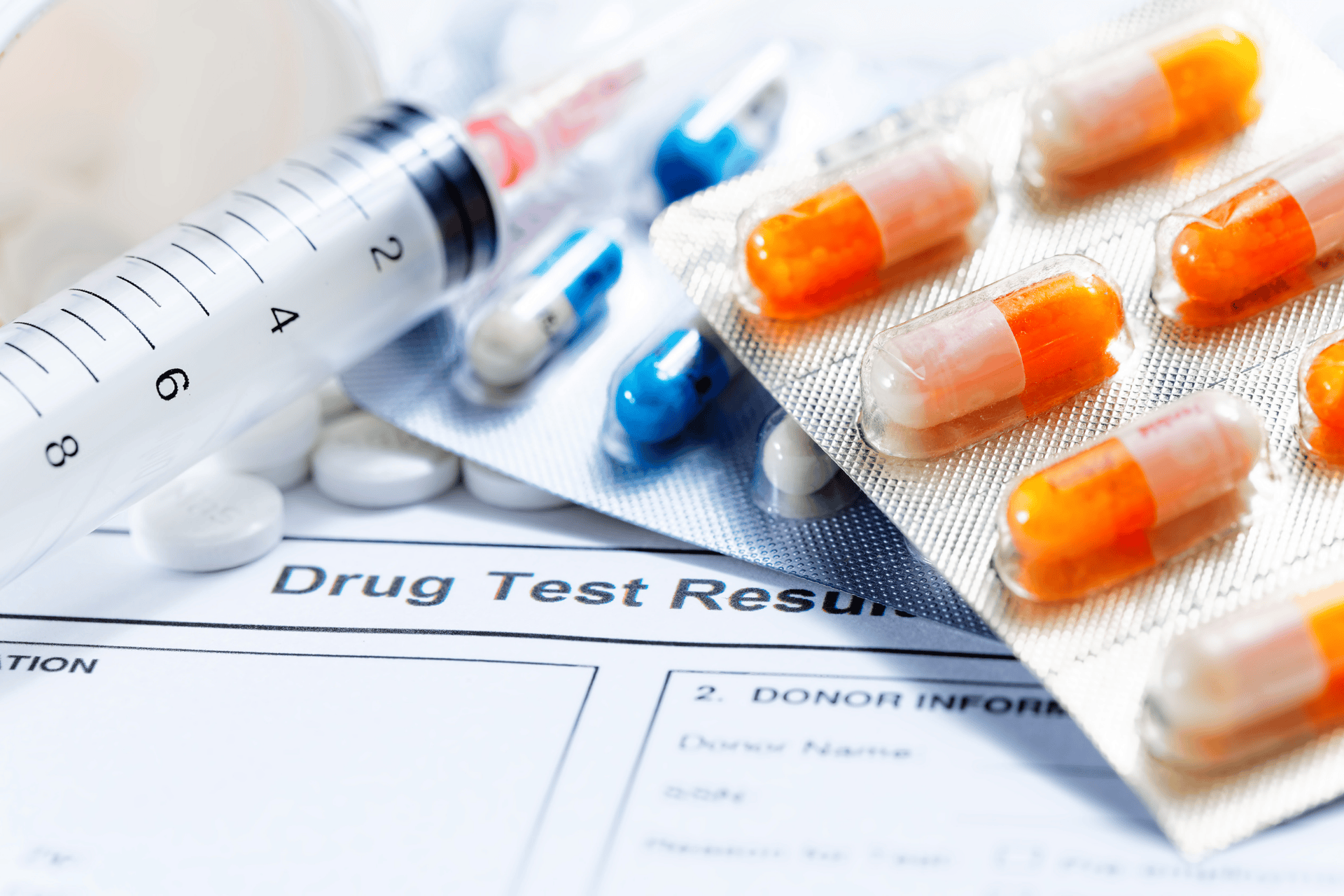Does Gabapentin Show Up on a Drug Test?
If you take gabapentin, you might wonder if it will show up on a drug test. This question matters for many people, whether it’s for work, sports, or legal reasons. Gabapentin [...]
Read More
Medically reviewed by Alan Lucks | MD, Alan Lucks MDPC Private Practice - New York on November 20th, 2025.
Standard 5-panel and 10-panel workplace screenings test only for THC, cocaine, amphetamines, opioids, and PCP—not anticonvulsants like this medication.
Specialized LC-MS/MS (liquid chromatography) testing can detect the drug in urine for 24-48 hours after your final dose, depending on kidney function and hydration.
The medication's unique chemical structure as a GABA analogue means it won't trigger false positives for benzodiazepines, opioids, or other controlled substances on immunoassay tests.
Sports organizations like WADA don't prohibit its use, but some collegiate programs may test specifically for it due to emerging concerns about recreational misuse at doses above 3,000mg daily.
Prescription verification prevents complications—bring your pharmacy bottle or prescription documentation showing your name, prescribing doctor, and current dosage to any testing facility.
If you take gabapentin, you might wonder if it will show up on a drug test. This question matters for many people, whether it’s for work, sports, or legal reasons. Gabapentin is a common medication used for nerve pain, seizures, and other conditions. Understanding how drug tests work and what they detect can help you prepare and avoid surprises.
 What Is Gabapentin and Why Is It Used?
What Is Gabapentin and Why Is It Used?Gabapentin is a prescription medicine that doctors often give to treat nerve pain, epilepsy, and sometimes anxiety. It works by calming nerve activity in the brain and nervous system. People take gabapentin for conditions like shingles pain, diabetic nerve pain, and seizures.
Because gabapentin affects the nervous system, some worry it might show up on drug tests or cause problems during screenings. Knowing how drug tests work can clear up these concerns.
In addition to its primary uses, gabapentin is sometimes prescribed off-label for various conditions, including restless leg syndrome and certain types of chronic pain. This versatility makes it a valuable tool in pain management and neurological treatment. Patients often report significant improvements in their quality of life when using gabapentin, as it can help alleviate discomfort that interferes with daily activities. However, like any medication, it is essential to use gabapentin under the guidance of a healthcare professional to monitor for potential side effects, which can include dizziness, fatigue, and mood changes.
Gabapentin's mechanism of action is particularly interesting. It is believed to bind to specific calcium channels in the nervous system, which helps to inhibit the release of excitatory neurotransmitters. This action not only contributes to its effectiveness in treating nerve pain and seizures but also highlights the complexity of managing conditions that involve the nervous system. As research continues, there may be even more potential applications for gabapentin, expanding its role in treating various neurological disorders and improving patient outcomes.
Drug tests check your body for certain substances. The most common tests look for illegal drugs or medications that can be abused. Here are the main types:
Urine tests: The most common method is checking for drug metabolites in urine.
Blood tests: Used less often, they detect drugs currently in your bloodstream.
Hair tests: Can show drug use over a longer time, usually months.
Saliva tests: Detect drugs recently used, often within hours or days.
Standard drug tests often look for:
Marijuana (THC)
Cocaine
Amphetamines
Opiates
Some tests may also check for benzodiazepines, barbiturates, or other prescription drugs, depending on the situation.
Most standard drug tests do not look for gabapentin. It is not included in the usual panels because it is not classified as a controlled substance in many places. This means typical workplace or probation drug tests usually won’t detect gabapentin.
However, this does not mean gabapentin is invisible to all tests. Specialized tests can detect gabapentin if specifically requested. These tests are more expensive and less common.
Gabapentin is prescribed widely and has a low potential for abuse compared to other drugs. Because of this, many testing programs do not include it. Also, gabapentin’s chemical structure is different from that of drugs typically screened for, so it won’t cause false positives on standard tests.
Some specific situations may call for gabapentin testing:
Medical monitoring: Doctors may want to check if you are taking gabapentin as prescribed.
Legal cases: Courts or probation officers might require testing for gabapentin if misuse is suspected.
Sports organizations: Some athletic bodies may test for gabapentin if it is banned or restricted.
In these cases, specialized urine or blood tests can detect gabapentin. But these are not part of routine drug screens.
If you think you might need gabapentin or have concerns about drug testing, talking to a healthcare professional is the best step. Telehealth services like Doctronic.ai offer quick and affordable video visits with licensed doctors. They can provide advice, prescriptions, and answer your questions 24/7, no matter where you live in the US.
Using AI-powered care through Doctronic.ai means you get fast, personalized answers based on the latest medical research. This can help you understand your medication and any testing requirements clearly.
If you take gabapentin legally, always disclose this before any drug test. Providing a prescription or doctor’s note can prevent misunderstandings.
Keep your gabapentin prescription details handy. This helps if you need to prove your medication use during testing.
Before any drug test, especially if it’s for work or legal reasons, ask a healthcare provider about your specific situation. Doctronic.ai can connect you with doctors who understand drug testing and medication interactions.
While gabapentin is generally safe when used as prescribed, some people misuse it for its calming effects. This has led to increased attention from some testing programs. If misuse is a concern, specialized tests can detect gabapentin.
However, most standard drug tests are not designed to catch gabapentin use. Knowing this can ease worries if you take the medication legally.
If you take gabapentin and undergo a standard drug test, it is very likely your test will come back negative for gabapentin. This is because routine panels do not include it.
If a specialized test is done, gabapentin can be detected for up to 2 days after the last dose in urine. Blood tests may detect it for a shorter period. These tests are rare and usually only done when specifically requested.
For anyone using gabapentin or considering it, reliable medical advice is key. Telehealth platforms like Doctronic.ai provide easy access to doctors who can explain your medication, test options, and health concerns.
Doctronic’s AI-powered system offers quick answers based on the latest research, plus access to real doctors for telehealth visits under $40. This makes it simple to get trusted care without long waits or high costs.

No, gabapentin does not cause false positives on standard drug tests. It is chemically different from drugs commonly tested.
Yes, but only if the test is specifically designed to look for gabapentin. Routine drug tests do not include it.
Gabapentin can be detected in urine for about 1 to 2 days after the last dose. Blood tests detect it for a shorter time.
Yes, it is important to disclose your prescription medication before drug testing to avoid misunderstandings.
Telehealth services like Doctronic.ai offer quick, affordable access to doctors who can answer your questions and provide prescriptions if needed.
Gabapentin is a helpful medication for many people with nerve pain or seizures. Understanding how it interacts with drug testing can help you stay informed and prepared. If you need advice or a prescription, using telehealth services like Doctronic.ai is a convenient way to get expert care anytime.
Remember, honesty about your medication and consulting with healthcare professionals ensures the best outcomes for your health and any testing requirements.
Routine workplace and probation drug tests won't detect this anticonvulsant since it's not part of standard panels, though specialized testing can identify it within 2 days if specifically requested. Always disclose your prescription beforehand to avoid unnecessary complications with employers or legal proceedings. If you have concerns about drug interactions or testing protocols, Doctronic can provide personalized guidance for your specific situation.
If you take gabapentin, you might wonder if it will show up on a drug test. This question matters for many people, whether it’s for work, sports, or legal reasons. Gabapentin [...]
Read More